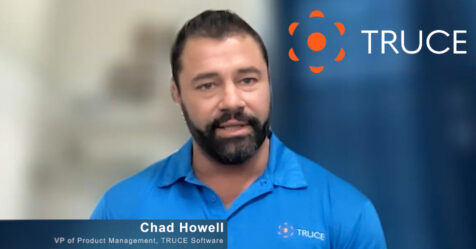The economy appears to be rebounding from the effects of the coronavirus pandemic. Businesses have opened or are in the process of reopening, people want to go out and spend money, and employers want to see their staff back in the office, even if it means requiring them to be vaccinated and wear masks. This is good news for the professional cleaning industry. When facilities are open, they need to be cleaned.
But the problem today is that many cleaning workers do not want to return to their old jobs. Employers are aggressively competing for lower-wage workers, with some offering US$1,000 signing bonuses and others raising minimum wage to $15 an hour sooner than previously planned, according to the April 2021 issue of the Summary of Commentary on Current Economic Conditions, the Federal Reserve System publication about current economic conditions in the United States.
Why the shortage of workers?
Signing bonuses for cleaning workers are extremely rare. A couple of years ago, if a hotel or a contract cleaner, for instance, advertised for housekeepers or cleaning workers, they might get 15 to 20 applicants in a day or two. However, it looks like those days are over, at least for now. Here are some of the likely contributing factors:
- Many cleaning workers view themselves as front-line workers, helping to slow and stop the spread of COVID-19. However, that also means they are at greater risk of contracting the disease, decreasing their interest in returning to their jobs.
- Some cleaning workers consider the matter a social equity issue. They believe they were not valued enough for keeping people healthy before the pandemic. Although respect for cleaning, in general, has improved since the start of the pandemic, it is not enough for many cleaning workers to take risks and return to work.
- Unemployment relief bills passed by Congress providing additional jobless benefits to millions have, according to many, made it unnecessary to go back to work. While the HuffPost reports that economists analyzing recent studies refute this, we know that some workers were earning the same amount or more by not working.
- Childcare costs have increased in many areas of the country, often due to a lack of childcare centers or the centers closing during the pandemic. This has forced many workers, primarily women, to stay home with their children and not return to the workforce.
- Having spent several months not working in the cleaning industry, some employees have decided to venture into other types of employment.
It appears the reasons for the worker shortage are varied. This list likely covers just the basics. However, the focus now must be on recruitment—attracting new workers and, just as important, keeping them.
Start by being green
Recent studies indicate that young people are more focused on environmental issues, compared to the older generations. According to a survey published in Fast Company, often viewed as the go-to magazine for young people in the technology sector, corporate sustainability is a priority and most millennials would take a pay cut to work at an environmentally responsible company. According to the study, 40% have already done so.
Other studies, such as one published by the Governance and Accountability Institute Inc.TM (GAI), a sustainability consulting firm, confirm these results. The GAI reports that 70% of 1,000 people surveyed said they would choose to work at a company with a strong environmental agenda, and a sizable number said they would take a pay cut to do so.
When recruiting cleaning workers, building service contractors (BSCs) must put more emphasis on the steps they are taking to be green and sustainability-focused, according to Steve Ashkin, president of The Ashkin Group, a consulting firm specializing in green cleaning and sustainability. “Further, the recent release of the Intergovernmental Panel on Climate Change (IPCC) has made this even more crucial,” he says.
Ashkin adds that today’s young cleaning professionals are well educated. “To recruit these people, contractors need to validate their [green and] sustainability accomplishments and show they are taking action to address climate change and protect our environment.”
Focus on recruitment basics
Although the coronavirus pandemic has changed many processes, BSCs and other employers should not lose sight of the basics. They should consider the following employee traits and recruiting practices when hiring new staff.
- Make sure workers have cleaning experience. Some applicants do not realize that cleaning is a very physical job. If they have performed cleaning tasks before, they likely already know what to expect.
- Check for self-motivation. Even when in teams, much of the work cleaning staff perform is on their own. New hires should be comfortable working independently and perform their job satisfactorily without a supervisor looking over their shoulder.
- Friendliness matters. One cleaning contractor believes his custodial crew is the face of his company. Before hiring, his staff is asked to watch how applicants interact with others in the office. If the applicants are polite—saying please and thank you and showing courtesy—this contractor believes this is how the applicants will treat clients.
- Look for commitment to the customer. While most contractors want their staff to commit to their company, what is even more important is that workers are loyal to the customer.
- Discuss training. Workers view training as an investment in them. Training encourages new workers to excel in their role, realizing an advancement within the company may be in sight.
- Reveal your mission statement. A mission statement that declares an organization’s views and goals can prove very worthwhile when recruiting new workers. In the past, only large BSCs had a mission statement. Now all BSCs need a short but effective mission statement expressing their values and why their company is a good place to work.
Digitize cleaning
Mops and buckets are what many people visualize when they think about the professional cleaning industry. Although those tools are still two of the industry’s mainstays, they have never proven to be an attraction to newcomers considering being a part of the industry.
Fortunately, cleaning tools are changing and changing very quickly. The Internet of Things (IoT) is playing an ever-expanding role in professional cleaning. Through electrostatic cleaners, ultraviolet-C (UV-C) light systems, and UV-C air purifiers, technology is becoming an everyday part of professional cleaning.
Architects and building planners now realize the importance of technology and are working to keep up with the industry. Previously, their main concern was installing enough power outlets and janitorial closets in a facility to help cleaning workers perform their duties. Today, they are developing new facilities with the assumption that robotic floor machines, for instance, will be handling much of the floor care. Built-in sensors anticipate the needs of on-site robotic cleaning systems and other cleaning technologies.
This all bodes well for attracting new workers to the industry. Where mops and buckets have failed, technology and robotics have generated significant interest. “The inclusion of robotic and internet technology within the cleaning industry will help enhance the cleaning industry’s image,” says T. Balakrishnan, vice president for Diversey Care’s Asia Pacific division. “[This will bring] about a gradual change in attracting younger and technically qualified workers into the industry.”
Keep them on the payroll
BSCs that are successful in hiring new cleaning professionals still have one more issue to address: how to keep them.
Rick Vanderkoy, CEO of Secure Clean Building Services Inc. in Elgin, Illinois, has been in business for 45 years. When asked how to keep quality workers on the job, he offers the following suggestions:
- Be flexible. Offer cleaning workers greater flexibility in their schedules. “This helps many workers stay on the job.”
- Respect workers. Always have your management team treat cleaning workers with dignity and respect. “Even when there are disciplinary issues, handling them in a kind and respectful manner helps build a bond between company managers and the worker.”
- Value your employees. Make sure cleaning workers feel valued and supported.
- Offer bonuses. Offer a bonus each pay period for quality work and perfect attendance. “This can pay dividends.”
- Provide tools. Always provide clean and quality tools for workers to use. This also shows respect for the worker.
“Finally, I learned early in the game to always put people before profit,” says Vanderkoy. “You take care of your people, and the profit will take care
of itself.”



